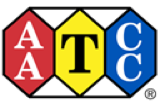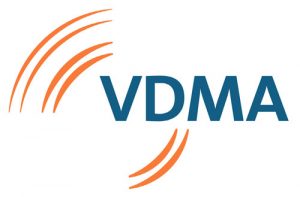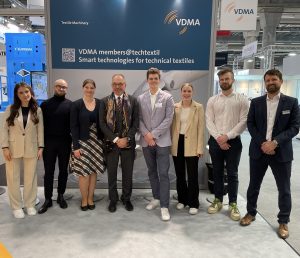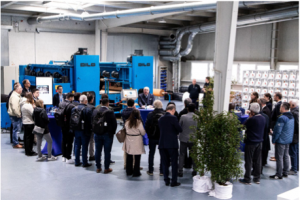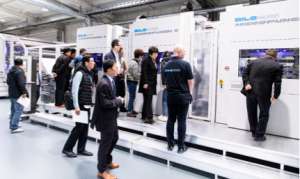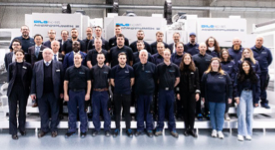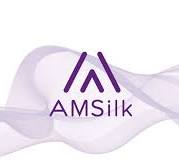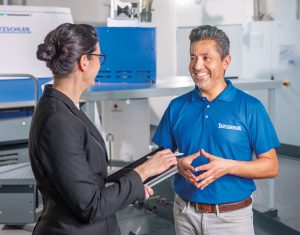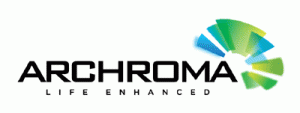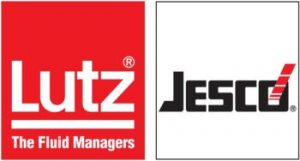 WERTHEIM, Germany — May 2, 2024 — Gentle and low-pulsation dosing of aggressive chemicals without pressure peaks and with minimized dead time. This is made possible by MEMDOS SMART, a new type of stepper motor dosing pump that Lutz-Jesco will be presenting at Achema, the world’s leading trade fair for the process industry, held June 210-14, 024 (Hall 8, Stand K86). The Industry 4.0-compatible dosing pump can be operated as easily and reliably as a smartphone via its full-color touch display.
WERTHEIM, Germany — May 2, 2024 — Gentle and low-pulsation dosing of aggressive chemicals without pressure peaks and with minimized dead time. This is made possible by MEMDOS SMART, a new type of stepper motor dosing pump that Lutz-Jesco will be presenting at Achema, the world’s leading trade fair for the process industry, held June 210-14, 024 (Hall 8, Stand K86). The Industry 4.0-compatible dosing pump can be operated as easily and reliably as a smartphone via its full-color touch display.
What do wastewater treatment plants, power stations and car washes have in common? They all need to dose aggressive chemicals on a daily basis — wastewater treatment plants have to dose flocculants into the water, power stations have to dose rust inhibitors to their piping and car washes are required to dose detergents to their cleaning brushes. These substances are often introduced via dosing pumps equipped with a diaphragm in its dosing head. The backwards movement of the diaphragm generates negative pressure in the pump head, which draws liquid in. If it moves forwards, the fluid is expelled from the pump head.
It is a simple and reliable principle with just one downside: conventional models available on the market usually work with standard motors running at a constant speed that maintain equal diaphragm stroke times during priming and ejection. This is disadvantageous because fluid delivery stops during the vacuum generation phase. These constant interruptions not only reduce efficiency, but also lead to a phenomenon known as “pulsation”, which can cause pressure fluctuations in the lines that impair the accuracy of the dosing and, in the worst case, result in damage and outages. “Pump operators often have to buy expensive accessories such as pulsation dampers in order to manage this detrimental effect,” says Steffen Roth, Head of Development at Lutz-Jesco GmbH. “An economical alternative that we will be presenting at Achema 2024 is our new generation of diaphragm dosing pumps called MEMDOS SMART.”
A stepper motor enables the gentle and low-pulsation dosing of aggressive chemicals
At the heart of the new diaphragm dosing pumps from Lutz-Jesco is a drive with a microprocessor-controlled stepper motor. Unlike standard motors, however, the motor can be run asynchronously. In other words, the dosing pump can operate at different speeds for the suction stroke and pressure stroke. This enables operation of the motor at a higher speed during suction, thereby creating negative pressure which draws in the fluid more quickly. The vacuum phase, a dead time with standard motors, is reduced to a minimum. After priming, the stepper motor can then operate at a slower speed to expel the fluid in a controlled and even manner without an abrupt increase in pressure. A slow mode is available for highly viscous media.
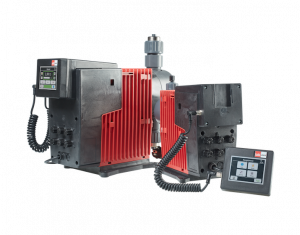 “The stepper motor enables an almost constant supply stream, which permits the gentle, low-pulsation dosing of aggressive chemicals without pressure peaks and with minimized dead time,” emphasizes Roth. The repetitive accuracy of the MEMDOS SMART series diaphragm pumps is +-1 per cent across the entire dosing range. “We are convinced that stepper motor-driven diaphragm dosing pumps will dominate the market for high-precision and reproducible industrial dosing applications.”
“The stepper motor enables an almost constant supply stream, which permits the gentle, low-pulsation dosing of aggressive chemicals without pressure peaks and with minimized dead time,” emphasizes Roth. The repetitive accuracy of the MEMDOS SMART series diaphragm pumps is +-1 per cent across the entire dosing range. “We are convinced that stepper motor-driven diaphragm dosing pumps will dominate the market for high-precision and reproducible industrial dosing applications.”
The MEMDOS SMART is available in eight performance levels, with delivery rates ranging from two litres per hour at a pressure of 20 bar up to 180 litres per hour at four bar. There are also four different versions to cover all market requirements.
Easy to install, Industry 4.0-compatible and as easy to operate as a smartphone via a touch display
Lutz-Jesco has designed the pumps of the MEMDOS SMART series to be so compact that they require minimal installation space and can be integrated into compact dosing systems. For example, the models with delivery rates of between two and 30 litres per hour are just 280 mm long, 130 mm wide and 220 mm high. The pumps have a removable base for quick wall mounting, thereby minimizing the installation effort. The full-colour 3.5-inch touch display can be integrated into the right-hand, left-hand or rear side of the housing, depending on the version, thereby ensuring flexibility for different installation situations. A version is also available with a ring cable. “Users can mount the cable-connected displays of several pumps next to each other on the wall and control the devices centrally from a single location, thereby saving time” says Roth.
According to Roth, the operation itself is as intuitive as that of a smartphone. “Users can understand and perform all functions immediately without the need for operating instructions. This combination of a full-colour touch display with operation similar to a smartphone sets us apart from other market players. It makes for significantly faster and less error-prone pump control”. At the same time, users can integrate the devices into a higher-level control system via a BUS interface. “In the Industry 4.0 era, this enables seamless integration of the dosing pump into larger industrial automation systems. If desired, the pumps of the MEMDOS SMART series can even control the entire system with valves, sensors, flow meters and other dosing pumps.”
Posted: May 2, 2024
Source: Lutz Holding GmbH
 PORTLAND, Ore. — May , 2024 — Columbia Sportswear Co. — a global designer, source, marketer and distributor of outdoor, active and everyday lifestyle apparel, footwear, accessories, and equipment products — today announced that Michael Minter will be joining the company as SOREL’s vice president, Brand.
PORTLAND, Ore. — May , 2024 — Columbia Sportswear Co. — a global designer, source, marketer and distributor of outdoor, active and everyday lifestyle apparel, footwear, accessories, and equipment products — today announced that Michael Minter will be joining the company as SOREL’s vice president, Brand.
